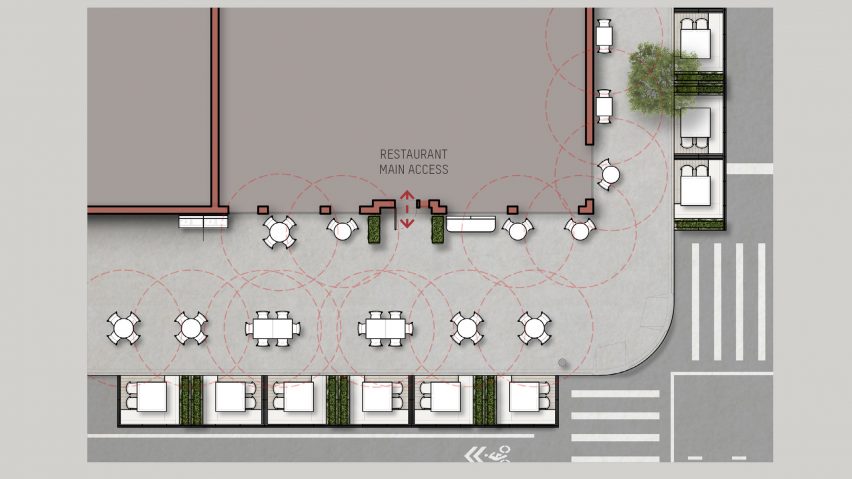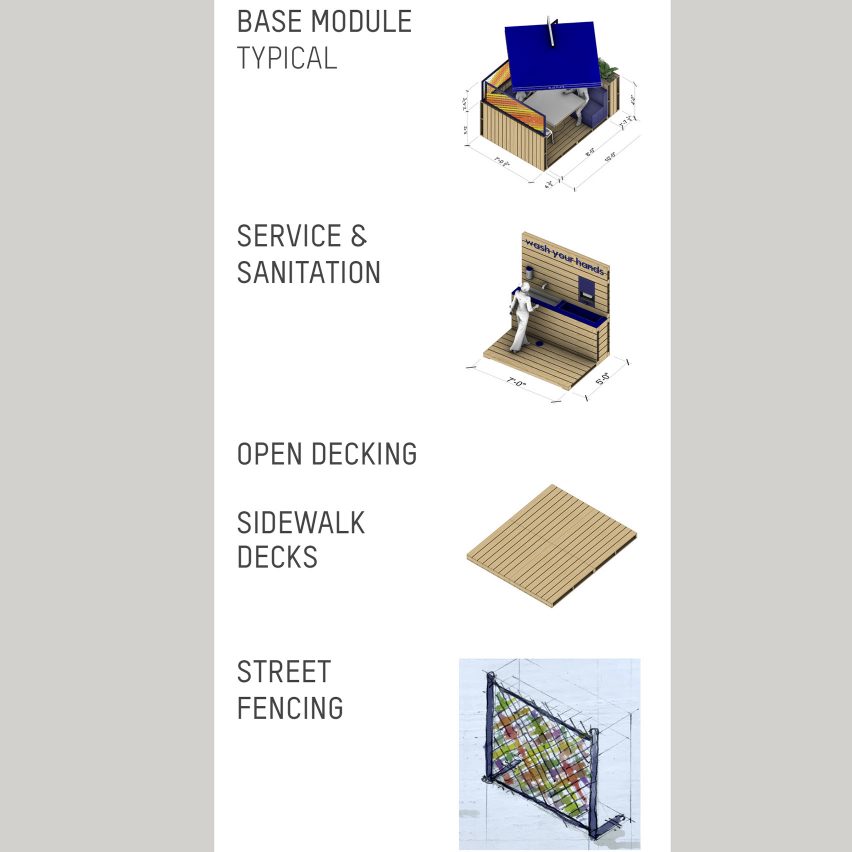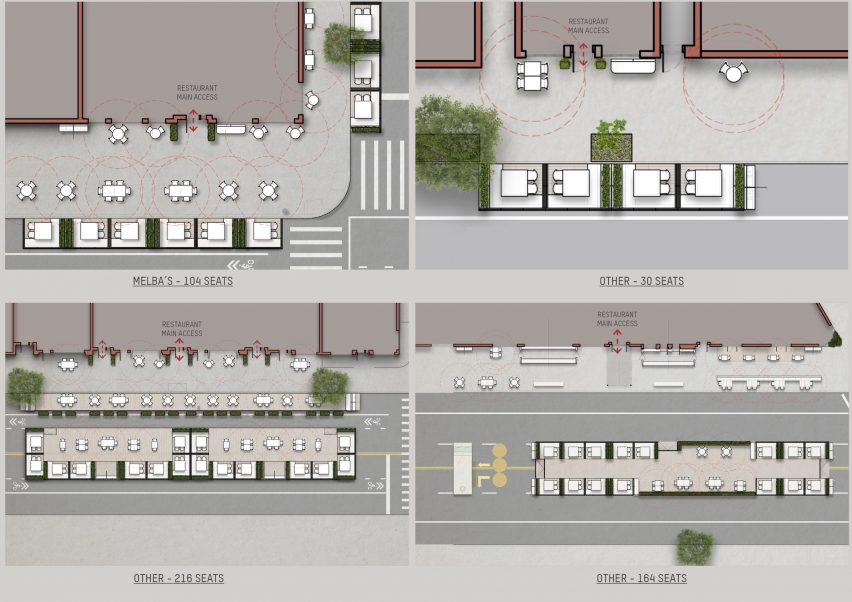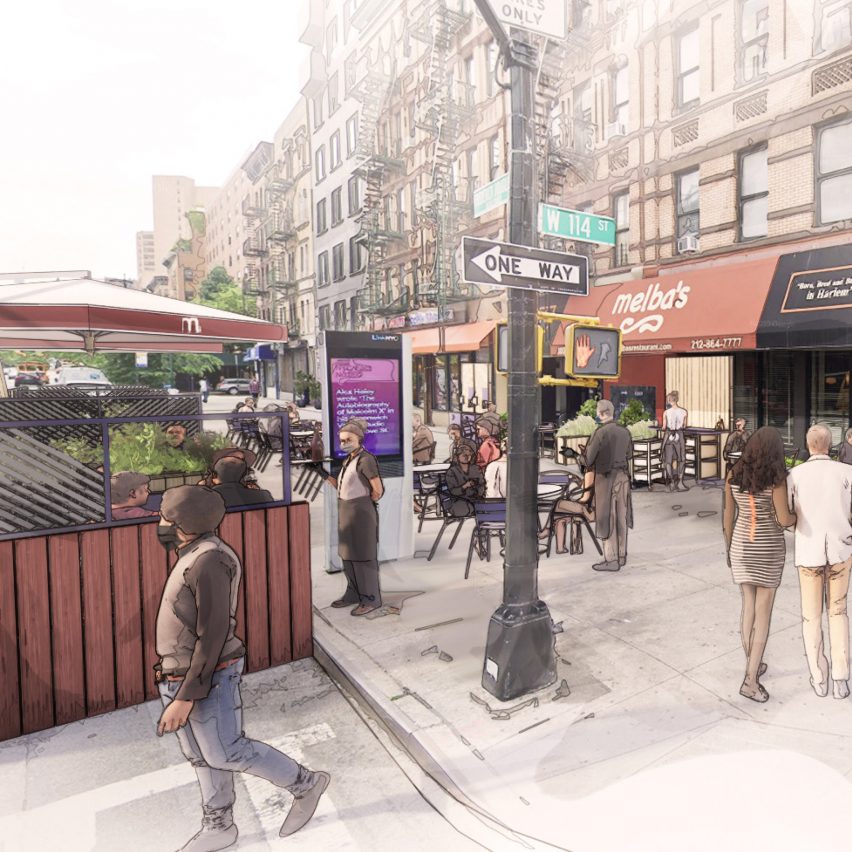
David Rockwell unveils kit to build restaurants on streets following pandemic
Designer David Rockwell has created a kit of parts to turn New York City's streets into outdoor restaurants that allow for socially distanced dining.
The American designer and his studio Rockwell Group have developed a way to extend existing restaurants onto the surrounding pavements and nearby streets so they can safely reopen amid the coronavirus pandemic.

The kit of parts includes a dining booth, a sanitation station, wooden decking panels to cover pavements and plant-covered street fencing. These are accompanied by accessory details like lighting, umbrellas, fans and planter benches. The existing restaurant would be limited to employees.
"Our hope is that we can create a template that is adaptable for different locations and sidewalk and street environments, and that it will be cost-effective for the city and restaurant owners and also provide potential revenue to offset costs," said the team.
New York City bars and restaurants have been closed to the public, aside from takeout and delivery, since 22 March in a bid to mitigate the spread of coronavirus in the city. While inside spaces mean that people spend a lot of time in close proximity, Rockwell believes outdoor dining could offer a safe way to dine out as lockdown measures start to ease.

"David and Rockwell Group knew from the first days of this pandemic that we would have to make adjustments to how we dine out until the virus is resolved from a medical standpoint," the studio said.
"This includes, first and foremost creating a safe place for restaurant workers and guests, and better utilising space within and outside restaurants during this period of social distancing, which will continue to evolve."
Rockwell is currently working with restaurant operators, active members of the restaurant business and the city to develop the concept. To show how it could work, the studio has mocked up an adaptation of Melba's, a corner restaurant in New York neighbourhood Harlem.
The proposal adds nine covered booths divided by fencing on the street, with additional seas placed on the pavement to meet with social-distancing regulations. These tables are interspersed with sanitation stations for restaurant employees to regularly wash their hands.

It has also developed a series of floor plans detailing ways to create a small 30-seat outdoor restaurant and also more ambitious proposals to takeover a street with a 204-seat eatery.
The project forms part of a series of investigations to find ways to dine following the pandemic. Arts centre Mediamatic has also developed a socially distanced dining experience in Amsterdam where guests sit in their own greenhouse and hosts wear face shields.
Dubai-based studio Roar, meanwhile, has gathered together a trend report to predict ways coronavirus will impact the hospitality industry. It suggests that there will be a rise in escapist restaurant interiors, and physical menus, cash payments and buffets will largely be abandoned.